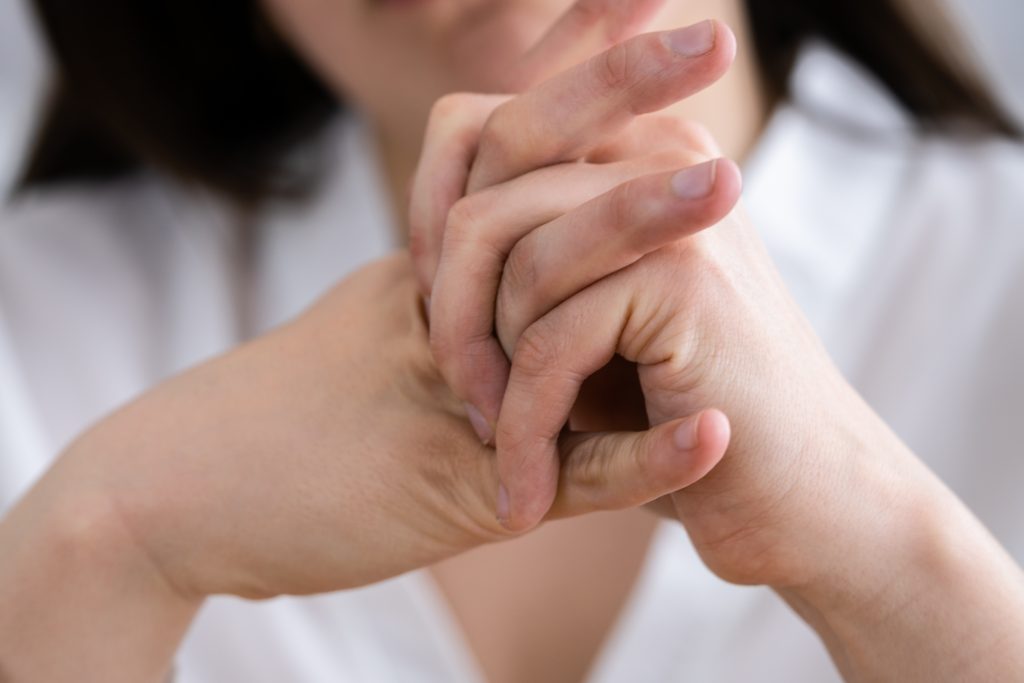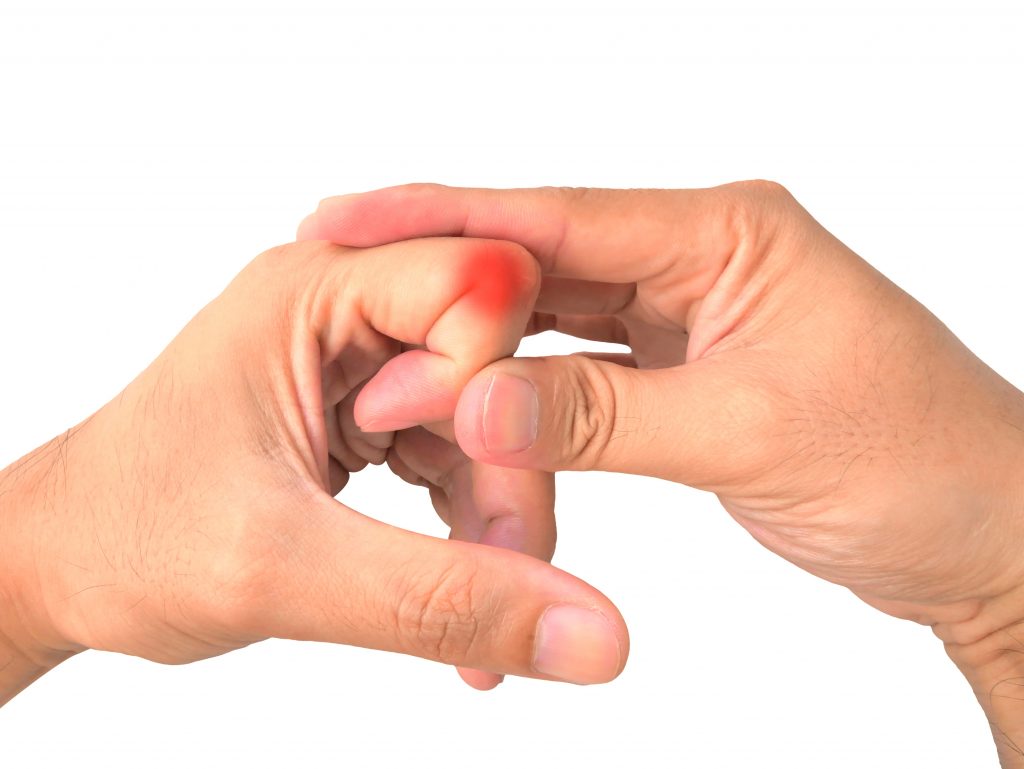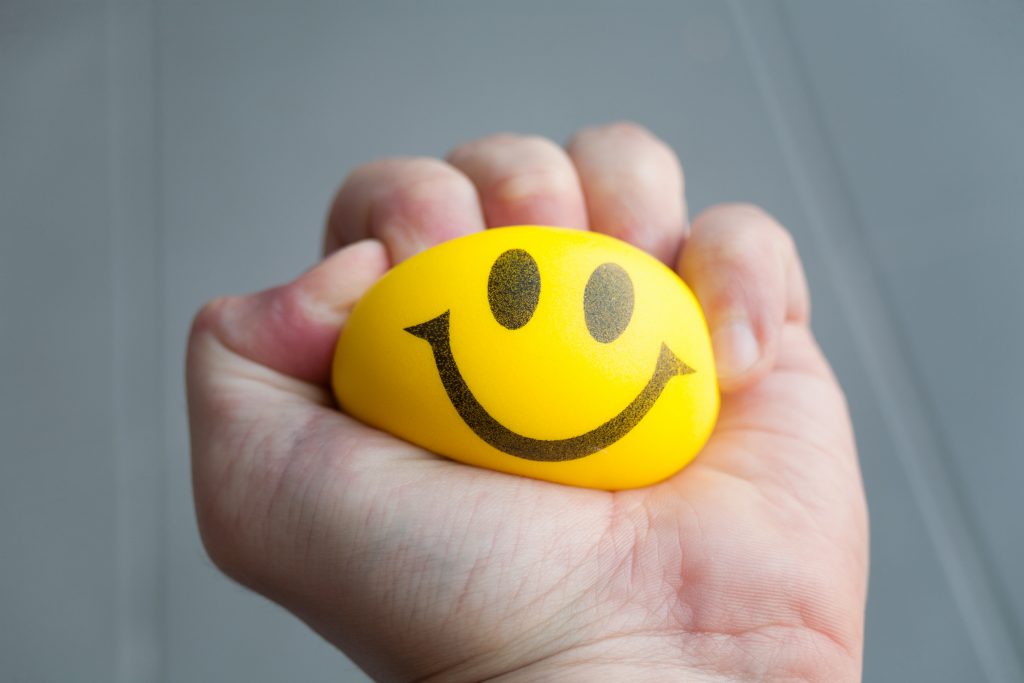December 28, 2021
Does Cracking Your Knuckles Cause Arthritis?
Stress, anxiety, restlessness, joint tension — there are many reasons you might find relief in cracking your knuckles. But is popping your knuckles bad for you? Does cracking your knuckles cause arthritis or other joint problems?
Read on to learn all about knuckle-cracking, whether it’s bad for you, and if any negative long-term side effects are associated with popping your knuckles regularly.
Does Cracking Your Knuckles Cause Arthritis?
Although you’ve probably heard popping your knuckles can cause arthritis as you age, decades of research says otherwise. Several studies have failed to show any correlation between habitual knuckle-cracking and arthritis of the hands or other joints.
But while research has found that popping your knuckles won’t cause arthritis, the habit may be detrimental to those who already have damaged or weak joints. Theoretically, people who have arthritis and still crack their knuckles frequently may increase their risk of ligament injuries or acute joint trauma.
Is Cracking Your Knuckles Bad for You?
The short answer? Probably not. There’s no evidence that shows knuckle-cracking is particularly harmful or beneficial for you. That said, one study published in 1990 compared people who habitually popped their knuckles and those who did not. Researchers found that people who cracked their knuckles regularly experienced more hand swelling and had lower grip strength than people who didn’t crack their knuckles at all.
While the study did correlate negative side effects with regular knuckle popping, it also confirmed there was no difference in the incidence of arthritis between the two groups.
A much later study, conducted in 2017, called the results of the 1990 study into question, though. The 2017 study found that habitual knuckle-popping had no long-term side effects on hand swelling, grip strength, joint laxity, or joint range of motion.
Another study conducted by a California physician set out to determine whether regular knuckle-cracking would be detrimental over the long term. To gather evidence, he performed an experiment on himself, cracking the knuckles of his left hand at least twice a day over a period of 50 years. During that time, he rarely cracked the knuckles of his right hand.
At the end of the 50-year period, the doctor compared his hands to see if the left hand had suffered any negative side effects caused by knuckle-cracking. Both a visual exam and X-rays showed no difference between his left and right hand.
What Happens When You Crack Your Knuckles?
What’s going on inside the joint when you pop your knuckles? What researchers currently know is that the cracking noise is associated with a pressure change inside the joint capsule.
For a long time, researchers thought the popping sound was caused by nitrogen bubbles either collapsing or forming within the joint’s synovial  fluid. A 2015 study set out to confirm which part of that theory was true.
fluid. A 2015 study set out to confirm which part of that theory was true.
In the study, researchers used MRI to observe people’s knuckles while being cracked. The MRI revealed that the rapid pulling apart of the joint created negative pressure, which caused a cavity (bubble) to form within the joint fluid. The researchers concluded the formation of the bubble produced the popping sound.
But a 2018 study suggested something different. In that study, researchers created a mathematical model to explain the popping noise produced by knuckle-cracking. Their model showed the cracking sound was most likely caused by the bubble collapsing rather than forming. Since bubbles can remain inside a joint even after the joint is popped, the researchers concluded that only a partial collapse of the bubble is necessary to produce the cracking sound.
The bottom line? Researchers still aren’t completely sure what causes the popping sound when you crack your knuckles.
Does Cracking Your Knuckles Make Them Bigger?
There’s no good evidence that suggests popping your knuckles will make them bigger over the long term. That said, for some people, a knuckle-popping session may cause a temporary increase in the size of the knuckles, but any subtle swelling should go away within a few minutes.
Does Cracking Your Knuckles Consistently Cause Any Side Effects?
There’s no hard evidence that cracking your knuckles consistently causes any side effects. But when knuckle popping is accompanied by pain, there may be an underlying joint condition that could cause problems eventually.
Bursitis, tendonitis, loose cartilage, and injured ligaments can make knuckle popping painful. While the cracking itself isn’t likely to cause problems, these underlying conditions can cause some degree of joint damage. That’s why, if you experience pain when you pop your knuckles, you should do your best to curb the habit.
How Do You Stop Cracking Your Knuckles?
Although popping your knuckles won’t necessarily harm you, it may feel uncomfortable and can also be distracting to the people around you. But if knuckle-cracking has become a habit, you may find it difficult to stop even if you want to.
 When you’re ready to break the habit, the following tips can help:
When you’re ready to break the habit, the following tips can help:
- If you crack your knuckles to help reduce stress, try taking up another stress-relieving practice like deep breathing or meditation.
- Think about why you regularly crack your knuckles. If you do it when you’re anxious or because your joints always feel tense, address the underlying issue that makes you want to pop your joints.
- Practice more awareness around your knuckle popping. When you find yourself about to crack a knuckle, consciously stop.
- Give your hands something else to do. Try squeezing a stress ball, playing with a fidget toy, or stretching your hands instead.
- Wear a rubber band around your wrist and snap it each time you’re tempted to crack your knuckles.
When to See a Doctor
Cracking your knuckles is widely considered harmless. Even if you do it regularly, you shouldn’t experience pain, lasting swelling, or a change in the shape of your joints. If you notice any of these things, something else is wrong, and you should have your joints evaluated by your doctor.
Pulling on a joint too forcefully or moving it in the wrong direction can also cause dislocation and serious pain. If you experience rapid swelling or the joint looks crooked after you pop it, visit your doctor right away.
DISCLAIMER
The information featured in this site is general in nature. The site provides health information designed to complement your personal health management. It does not provide medical advice or health services and is not meant to replace professional advice or imply coverage of specific clinical services or products. The inclusion of links to other web sites does not imply any endorsement of the material on such websites.